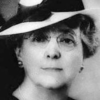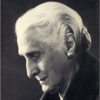We cannot really love anybody with whom we never laugh.
Agnes Repplier (1855-1950) American writer
“Goodness and Gayety,” Americans and Others (1912)
(Source)
Note: Though this is usually attributed to Repplier, she precedes the phrase with "It has been wisely said that ..."
Quotations about:
love
Note not all quotations have been tagged, so Search may find additional quotes on this topic.
The pain of grief is just as much a part of life as the joy of love; it is, perhaps, the price we pay for love, the cost of commitment.
Colin Murray Parkes (b. 1928) British psychiatrist and author
Bereavement: Studies of Grief in Adult Life (1972)
(Source)
Sometimes paraphrased, “Grief is the price we pay for love.”
A religious man is a person who holds God and man in one thought at one time, at all times, who suffers in himself harm done to others, whose greatest passion is compassion, whose greatest strength is love and defiance of despair.
Abraham Joshua Heschel (1907-1972) Polish-American rabbi, theologian, philosopher
“What Ecumenism Is” (1963)
(Source)
Collected in Susanna Heschel, ed., Moral Grandeur and Spiritual Audacity (1996). In other essays in the book, he uses the first clause ("a person who holds God and man in one thought, at one time, at all times") as a definition of a "prophet."
There are only two roads that lead to something like human happiness. They are marked by the words: love and achievement.
Theodor Reik (1888-1969) Austrian-American psychoanalyst, writer
A Psychologist Looks at Love (1944)
(Source)
Collected (with some modifications) in M. Sherman (ed.), Of Love and Lust Part 1, ch. 14 (1957).
This is frequently paraphrased or misquoted as "Work and love -- these are the basics. Without them there is neurosis." The apparent source of these misquotations is George Seldes, The Great Quotations (1960), where he attributed the passage to Reik and his book. Where Seldes got it from is unknown.
More discussion of this quotation: Ralph Keyes, Nice Guys Finish Seventh (1992).
But the Queen, long sick with love,
Nurses her heart’s deep wound
With her pounding blood, and dark flames
Lick at her soul. Thoughts of Aeneas —
The man’s heroic lineage, his noble character —
Flood her mind, his face and words transfix
Her heart, and her desire gives her no rest.[At regina gravi iamdudum saucia cura
volnus alit venis, et caeco carpitur igni.
Multa viri virtus animo, multusque recursat
gentis honos: haerent infixi pectore voltus
verbaque, nec placidam membris dat cura quietem.]Virgil (70-19 BC) Roman poet [b. Publius Vergilius Maro; also Vergil]
The Aeneid [Ænē̆is], Book 4, l. 1ff (4.1-5) (29-19 BC) [tr. Lombardo (2005)]
(Source)
(Source (Latin)). Alternate translations:
But long since Dido, struck with great desire,
Feeds a sad wound, and wastes in hidden fire.
His valour, his high birth run in her mind:
His face, and language, deep impression find,
Nor doth her care grant rest.
[tr. Ogilby (1649)]
But anxious cares already seiz'd the queen:
She fed within her veins a flame unseen.
The hero's valor, acts, and birth inspire
Her soul with love, and fan the secret fire.
His words, his looks, imprinted in her heart,
Improve the passion, and increase the smart.
[tr. Dryden (1697)]
But the the queen, long since pierced with painful care, feeds the wound in her veins, and is consumed by unseen flames. The many virtues of the hero, the many honors of his race, recur to her thoughts: hjis looks and words dwell fixed in her soul: nor does care allow calm rest to her limbs.
[tr. Davidson/Buckley (1854)]
Not so the queen: a deep wound drains
The healthful current of her veins:
Long since the unsuspected flame
Has fastened on her fevered frame:
Much dwells she on the chief divine,
Much on the glories of his line:
Each look is pictured in her breast,
Each word: nor passion lets her rest.
[tr. Conington (1866)]
But pierced with grievous pangs long since, the queen
Feeds in her veins the wound, by secret fire
Consumed. The hero's many virtues oft
Recur to her mind, and glories of his race.
Within her heart his looks, his words are fixed;
Her troubled soul allows her limbs no rest.
[tr. Cranch (1872)]
But the Queen, long ere now pierced with sore distress, feeds the wound with her life-blood, and catches the fire unseen. Again and again his own valiance and his line's renown flood back upon her spirit; look and accent cling fast in her bosom, and the pain allows not rest or calm to her limbs.
[tr. Mackail (1885)]
Meanwhile the Queen, long smitten sore with sting of all desire,
With very heart's blood feeds the wound and wastes with hidden fire.
And still there runneth in her mind the hero's valiancy,
And glorious stock; his words, his face, fast in her heart they lie:
Nor may she give her body peace amid that restless pain.
[tr. Morris (1900)]
Long since a prey to passion's torturing pains,
The Queen was wasting with the secret flame,
The cruel wound was feeding on her veins.
Back to the fancy of the lovelorn dame
Came the chief's valour and his country's fame.
His looks, his words still lingered in her breast,
Deep-fixt.
[tr. Taylor (1907), st. 1]
Now felt the Queen the sharp, slow-gathering pangs
of love; and out of every pulsing vein
nourished the wound and fed its viewless fire.
Her hero's virtues and his lordly line
keep calling to her soul; his words, his glance,
cling to her heart like lingering, barbed steel,
and rest and peace from her vexed body fly.
[tr. Williams (1910)]
But the queen, long since smitten with a grievous love-pang, feeds the wound with her life-blood, and is wasted with fire unseen. Oft to her heart rushes back the chief's valour, oft his glorious stock; his looks and words cling fast within her bosom, and the pang withholds calm rest from her limbs.
[tr. Fairclough (1916)]
But the queen finds no rest. Deep in her veins
The wound is fed; she burns with hidden fire.
His manhood, and the glory of his race
Are an obsession with her, like his voice,
Gesture and countenance.
[tr. Humphries (1951)]
But now for some while the queen had been growing more grievously love-sick,
Feeding the wound with her life-blood, the fire biting within her.
Much did she mue on the hero's nobility and much
On his family's fame. His look, his words had gone to her heart
And lodged there: she could get no peace from love's disquiet.
[tr. Day Lewis (1952)]
Too late. The queen is caught between love's pain
and press. She feeds the wound within her veins;
she is eaten by a secret flame. Aeneas'
high name, all he has done, again, again
come like a flood. His face, his words hold fast
her breath. Care strips her limbs of calm and rest.
[tr. Mandelbaum (1971)]
The queen, for her part, all that evening ached
With longing that her heart's blood fed, a wound
Or inward fire eating her away.
The manhood of the man, his pride of birth,
Came home to her time and again; his looks,
His words remained with her to haunt her mind,
And desire for him gave her no rest.
[tr. Fitzgerald (1981)]
But the queen had long since been suffering from love's deadly wound, feeding it with her blood and being consumed by its hidden fire. Again and again there rushed into her mind thoughts of the great valour of the man and the high glories of his line. His features and the words he had spoken had pierced her heart and love gave her body no peace or rest.
[tr. West (1990)]
But the queen, wounded long since by intense love,
feeds the hurt with her life-blood, weakened by hidden fire.
The hero’s courage often returns to mind, and the nobility
of his race: his features and his words cling fixedly to her heart,
and love will not grant restful calm to her body.
[tr. Kline (2002)]But the queen -- too long she has suffered the pain of love,
hour by hour nursing the wound with her lifeblood,
consumed by the fire buried in her heart.
The man’s courage, the sheer pride of his line,
they all come pressing home to her, over and over.
His looks, his words, they pierce her heart and cling --
no peace, no rest for her body, love will give her none.
[tr. Fagles (2006)]
But love's pain had already pierced the queen.
She fed it with her life-blood; the hidden flame consumed her.
Aeneas' courage and his noble birth haunted her thoughts.
His face and words lodged in her heart.
Love let her find no rest in sleep.
[tr. Bartsch (2021)]
“Faith, hope, and charity, these three; but the greatest of these is charity.”
There is a deeper meaning in this text than we at first see. Of “these three,” two concern ourselves; the third concerns others. When faith and hope fail, as they do sometimes, we must try charity, which is love in action. We must speculate no more on our duty, but simply do it. When we have done it, however blindly, perhaps Heaven will show us the reason why.
Dinah Craik (1826-1887) English novelist and poet [b. Dinah Maria Mulock]
Christian’s Mistake, ch. 2 (1865)
(Source)
A reference to the Bible, 1 Cor. 13:13, the "Three Theological Virtues."
A man has more character in his face at forty than at twenty. He has suffered longer, and the more love, the more suffering, the more character.
Mae West (1892-1980) American film actress
Goodness Had Nothing To Do With It, ch. 21 (1959)
(Source)
I’m not sure there can be loving without commitment, although commitment takes all kinds of forms, and there can be commitment for the moment as well as commitment for all time. The kind that is essential for loving marriages — and love affairs, as well — is a commitment to preserving the essential quality of your partner’s soul, adding to them as a person rather than taking away.
Merle Shain (1935-1989) Canadian journalist and author
Some Men are More Perfect Than Others, ch. 9 “Being True” (1973)
(Source)
Galla, deny; and render passion strong:
But, prudent Galla, don’t deny too long.[Galla, nega: satiatur amor nisi gaudia torquent:
sed noli nimium, Galla, negare diu.]Martial (AD c.39-c.103) Spanish Roman poet, satirist, epigrammatist [Marcus Valerius Martialis]
Epigrams [Epigrammata], Book 4, epigram 38 (4.38) (AD 89) [tr. Elphinston (1782), Book 12, ep. 195]
(Source)
(Source (Latin)). Alternate translations:
Galla deny, be not too eas'ly gain'd,
For Love will glut with Joys too soon obtain'd.
[tr. Cotton (1686)]
Galla, say "No:" love is soon sated, unless our pleasures are mixed with some pain;
but do not continue, Galla, to say "No" too long.
[tr. Bohn's Classical (1859)]
Refuse me, Galla; love cloys if its pleasures torture not:
but refuse not, Galla, too long.
[tr. Ker (1919)]
Galla, say "no" -- Tease love and you renew it.
But prithee, Galla, do not overdo it.
[tr. Pott & Wright (1921)]
Say you won't Galla: For passion cloys
if its joys are not tormenting
But don't take too long in relenting!
[tr. Bovie (1970)]
Galla, say no, for love, unless
It teases, cloys with happiness.
Don't take too long, though, to say yes.
[tr. Michie (1972)]
Galla, say no. Love palIs, unless its joys are torture. But Galla, don't say no for too long.
[tr. Shackleton Bailey (1993)]
A "No" can build love's piquancy,
But don't, too long, say "No" to me.
[tr. Ericsson (1995)]
Galla, say no. Love is satiated unless pleasures torment.
But, Galla, do not say no for too long!
[tr. Williams (2004)]
"No" is enticing; so is wooing slow.
But nothing works till you stop saying "No."
[tr. Wills (2007)]
Galla, say no. Some torment makes love stronger.
But, Galla, don’t keep saying no much longer.
[tr. McLean (2014)]
Galla, tell me "No": love stales unless its joys bring pain.
But, Galla, don't say "No" for very long.
[tr. Nisbet (2015)]
Without a wait
or some hard trial,
love won’t amuse me.
So hesitate
(just for a while ...)
[tr. Juster (2016)]
Galla, say No, for Love will cloy
Without some torments mixed with joy.
But, Galla, do not get me wrong --
Please don’t say No to me too long.
[tr. Barger]
It is easy when you’ve been hurt by love to give it up as a bad job and make independence your new god, taking the love you had to give and turning it in upon yourself. And most of us have had to protect ourselves so much at times that we’ve given up the high road and taken the low. But independence carried to the furthest extreme is just loneliness and death, nothing more than another defense, and there is no growth in it, only a safe harbor for a while. The answer doesn’t lie in learning how to protect ourselves from life — it lies in learning how to become strong enough to let a bit more of it in.
Merle Shain (1935-1989) Canadian journalist and author
When Lovers Are Friends, ch. 1 (1978)
(Source)
As the love increases in thee, so the loveliness increases: for love is itself the beauty of the soul.
Augustine of Hippo (354-430) Christian church father, philosopher, saint [b. Aurelius Augustinus]
Homilies on the 1st Epistle of John [Tractatus in epistulam Ioannis ad Parthos], Homily 9 [tr. Browne (1888)]
Sermon on 1 John 4:17-21. Alternate translations:
Beauty grows in you to the extent that love grows, because charity itself is the soul's beauty.
[tr. Ramsey (1990)]
Inasmuch as love grows in you, in so much beauty grows; for love is itself the beauty of the soul.
Tolerance is a better guarantee of freedom than brotherly love; for a man may love his brother so much he feels himself thereby appointed his brother’s keeper.
Everett Dean Martin (1880-1941) American educator, minister, writer, lecturer
Liberty (1930)
(Source)
The world is indeed full of peril, and in it there are many dark places; but still there is much that is fair, and though in all lands love is now mingled with grief, it grows perhaps the greater.
J.R.R. Tolkien (1892-1973) English writer, fabulist, philologist, academic [John Ronald Reuel Tolkien]
The Lord of the Rings, Vol. 1: The Fellowship of the Ring, Book 2, ch. 6 “Lothlórien” [Haldir] (1954)
(Source)
Once a woman has forgiven her man, she must not reheat his sins for breakfast.
Marlene Dietrich (1901-1992) German-American actress, singer
Marlene Dietrich’s ABC, “Forgiveness” (1962)
(Source)
Welcome, Christmas, bring your cheer.
Cheer to all Whos far and near.
Christmas Day is in our grasp,
so long as we have hands to clasp.
Christmas Day will always be
just as long as we have we.
Welcome Christmas while we stand,
heart to heart, and hand in hand.Dr. Seuss (1904-1991) American author, illustrator [pseud. of Theodor Geisel]
How the Grinch Stole Christmas!, TV special, final lines [Narrator] (1966) [with Irv Spector, Bob Ogle, Eugene Poddany]
(Source)
This phrase was from the 1966 animated special; it does not appear in the original 1957 book. It is unclear who actually wrote the words to the song, but "Dr. Seuss" is sually credited. The words are also embedded in the Whos' "Welcome Christmas" song. The narration was performed by Boris Karloff.
The last four lines are often paraphrased down to "Christmas will always be as long as we stand heart to heart and hand in hand."
We miss so much out of life if we don’t love. The more we love the richer life is — even if it is only some little furry or feathery pet.
Love unlocks doors and opens windows that weren’t even there before.
Mignon McLaughlin (1913-1983) American journalist and author
The Second Neurotic’s Notebook, ch. 1 (1966)
(Source)
And as those are base who are transported with gladness in the enjoyment of sensual pleasure, so are those scandalously vile whose minds are inflamed with desire for such indulgence. Indeed, all of what is commonly called “love” (nor, by Hercules, can I find any other name for it) is so trivial that I can see nothing to be compared with it.
[Et ut turpes sunt qui efferunt se laetitia tum, cum fruuntur Veneriis voluptatibus, sic flagitiosi, qui eas inflammato animo concupiscunt. Totus vero iste, qui vulgo appellatur amor — nec hercule invenio quo nomine alio possit appellari — tantae levitatis est, ut nihil videam quod putem conferendum.]
Marcus Tullius Cicero (106-43 BC) Roman orator, statesman, philosopher
Tusculan Disputations [Tusculanae Disputationes], Book 4, ch. 32 (4.32) / sec. 68 (45 BC) [tr. Peabody (1886)]
(Source)
(Source (Latin)). Alternate translations:
And as those are base who are elevated in Mirth, upon the satisfaction of their Lust, so are they scandalous, who are carried forth after it with an enflamed Concupiscence, and that whole affection commonly called Love (nor in truth do I find by what other name it may be call'd) hath so much of Levity in it, that I know nothing which I can think comparable to it.
[tr. Wase (1643)]
And as they are very shameful, who are immoderately delighted with enjoyment of venereal pleasures; so are they very scandalous, who lust vbehemently after them. And all that which is commonly called love (and believe me I can find no other name to call it by) is of such levity that nothing, I think, is to be compared to it.
[tr. Main (1824)]
And, as the brand of baseness attaches to those who glory in the shame of forbidden pleasures; so they are flagitious, who covet them with unbridled appetite. And, indeed, the whole of what vulgarly passes under the name of love -- and, by Hercules, I find no other name by which it can be called -- is of a levity which sets all comparison at defiance.
[tr. Otis (1839)]
And as they are very shameful who are immoderately delighted with the enjoyment of venereal pleasures, so are they very scandalous who lust vehemently after them. And all that which is commonly called love (and, believe me, I can find out no other name to call it by) is of such a trivial nature that nothing, I think, is to be compared to it.
[tr. Yonge (1853)]
Not only is it shameful to be carried away with gladness when enjoying the pleasures of Venus, but it is also disgraceful to have the mind aflame with desire for those pleasures. Indeed, speaking of what is popularly called love (not that I have any other name to call it!), all of it is so frivolous that I scarcely know what to compare with it.
[tr. Graver (2002)]
And as those who are carried away with joy when they enjoy Venus’ pleasures are filthy, those who share their desire with a burning spirit are criminal. Indeed, the whole thing which is commonly called "love" -- and by god it is impossible to name it anything else -- is of such meaninglessness that I know of nothing I think is comparable.
[tr. @sentantiq (2019)]
At twenty, men love women; at forty, girls; at fifty, themselves.
Minna Antrim (1861-1950) American epigrammatist, writer
Phases, Mazes, and Crazes of Love (1904)
(Source)
I do not love thee, Sabidius, nor can I say why;
I can only say this, I do not love thee.[Non amo te, Sabidi, nec possum dicere quare:
Hoc tantum possum dicere, non amo te.]Martial (AD c.39-c.103) Spanish Roman poet, satirist, epigrammatist [Marcus Valerius Martialis]
Epigrams [Epigrammata], Book 1, epigram 32 (1.32) (AD 85-86) [tr. Bohn’s (1859)]
(Source)
(Source (Latin)). Alternate translations:
I love thee not, Sabidius; ask you why?
I do not love thee, let that satisfy!
[tr. Wright (1663)]
I love thee not, but why, I can't display.
I love thee not, is all that I can say.
[tr. Killigrew (1695)]
SABBY, I love thee not, nor can say why.
One thing I can say, SAB: thee love not I.
[tr. Elphinston (1782)]
I love you not, Sabidis, I cannot tell why.
This only can I tell, I love you not.
[tr. Amos (1858), 3.86, cited as 1.33]
I do not love you, Sabidius, nor can I say why;
I can only say this, I do not love you.
[tr. Bohn's Classical (1897)]
I do not love you, Sabidius; and I can't say why.
This only I can say: I do not love you.
[tr. Ker (1919)]
I like you not, Sabidius, and I can't tell why. All I can tell is this: I like you not.
[tr. Shackleton Bailey (1993)]
I don’t love you, Sabidius, no, I can’t say why:
All I can say is this, that I don’t love you.
[tr. Kline (2006)]
Mister Sabidius, you pain me.
I wonder (some) why that should be
And cannot tell -- a mystery.
You inexplicably pain me.
[tr. Wills (2007)]
Sabidius, I dislike you, but why this is so true
I can't say, I can only say I don't like you.
[tr. Bovie (1970)]
Sabinus, I don’t like you. You know why?
Sabinus, I don’t like you. That is why.
[tr. Cunningham (1971)]
Sabidius, I don't like you. Why? No clue.
I just don't like you. That will have to do.
[tr. McLean (2014)]
There are some variations of this epigram of note. The first is from Thomas Forde (b. 1624):
I love thee not, Nell,
But why I can't tell;
Yet this I know well,
I love thee not, Nell.
[Letter to Thomas Fuller in Virtus Rediviva (1661)]
This seemingly served as a prototype for a more famous variant, attributed to Thomas Brown (1663-1704) (sometimes ascribed to "an Oxford wit") on Dr. John Fell, the Dean of Christ Church, Oxford, c. 1670:
I do not like thee, Dr. Fell,
The reason why I cannot tell;
But this, I'm sure, I know full well,
I do not like thee, Dr. Fell.
[Works, Vol. 4 (1774)]
This is sometimes rendered:
I do not love you, Dr. Fell,
But why I cannot tell;
But this I know full well,
I do not love you, Dr. Fell.
Along these same lines:
I do not like you, Jesse Helms.
I can’t say why I’m underwhelmed,
but I know one thing sure and true:
Jesse Helms, I don’t like you.
[tr. Matthews (1995)]
You would think we would envy only what we love, for being loveable. But no, we envy those the world loves, because we care less for being loveable than being loved.
James Richardson (b. 1950) American poet
“Vectors: 56 Aphorisms and Ten-second Essays,” Michigan Quarterly Review, # 37 (Spring 1999)
(Source)
A successful marriage requires falling in love many times, always with the same person.
In dreams and in love there are no impossibilities.
[Álomban és szerelemben nincs lehetetlenség.]
János Arany (1817-1882) Hungarian poet, writer, translator, journalist [John Arany]
(Attributed)
(Source)
Quoted in James Wood, Dictionary of Quotations from Ancient and Modern, English and Foreign Sources (1893).
Some of you young folks been saying to me, “Hey Pops, what you mean ‘What a wonderful world’? How about all them wars all over the place? You call them wonderful? And how about hunger and pollution? That ain’t so wonderful either.” Well how about listening to old Pops for a minute. Seems to me, it aint the world that’s so bad but what we’re doin’ to it. And all I’m saying is, see, what a wonderful world it would be if only we’d give it a chance. Love, baby, love. That’s the secret, yeah. If lots more of us loved each other, we’d solve lots more problems. And then this world would be a gasser. That’s wha’ ol’ Pops keeps saying.
Louis "Satchmo" Armstrong (1900-1971) American musician
Spoken introduction to “What a Wonderful World” (1970)
(Source)
In the arithmetic of love, one plus one equals everything, and two minus one equals nothing.
Mignon McLaughlin (1913-1983) American journalist and author
The Second Neurotic’s Notebook, ch. 4 (1966)
(Source)
Dogs want only love but cats demand worship.
How do I love thee? Let me count the ways.
I love thee to the depth and breadth and height
My soul can reach, when feeling out of sight
For the ends of being and ideal grace.
I love thee to the level of every day’s
Most quiet need, by sun and candle-light.
I love thee freely, as men strive for right;
I love thee purely, as they turn from praise.
I love thee with the passion put to use
In my old griefs, and with my childhood’s faith.
I love thee with a love I seemed to lose
With my lost saints. I love thee with the breath,
Smiles, tears, of all my life; and, if God choose,
I shall but love thee better after death.Elizabeth Barrett Browning (1806-1861) English poet
Sonnets from the Portuguese, #43 (1850)
(Source)
No evil dooms us hopelessly except the evil we love, and desire to continue in, and make no effort to escape from.
George Eliot (1819-1880) English novelist [pseud. of Mary Ann Evans]
Daniel Deronda, Book 5, ch. 8 (1876)
(Source)
Men use up their lives in heart-breaking political struggles, or get themselves killed in civil wars, or tortured in the secret prisons of the Gestapo, not in order to establish some central-heated, air-conditioned, strip-lighted Paradise, but because they want a world in which human beings love one another instead of swindling and murdering one another. And they want that world as a first step. Where they go from there is not so certain, and the attempt to foresee it in detail merely confuses the issue.
George Orwell (1903-1950) English writer [pseud. of Eric Arthur Blair]
“Can Socialists Be Happy?” Tribune (20 Dec 1943) [as John Freeman]
(Source)
When first we fall in love, we feel that we know all there is to know about life, and perhaps we are right.
Mignon McLaughlin (1913-1983) American journalist and author
The Neurotic’s Notebook, ch. 1 (1963)
(Source)
Of all forms of caution, caution in love is perhaps the most fatal to true happiness.
Bertrand Russell (1872-1970) English mathematician and philosopher
The Conquest of Happiness, ch. 12 (1930)
(Source)
Virtuous love consists in decorous desire for the beautiful.
[Δίκαιος ἔρως ἀνυβρίστως ἐφίεσθαι τῶν καλῶν]
Democritus (c. 460 BC - c. 370 BC) Greek philosopher
Frag. 73 (Diels) [tr. Freeman (1948)]
(Source)
Diels citation "73. (87 N.) DEMOKRATES. 38."; collected in Joannes Stobaeus (Stobaios) Anthologium III, 5, 23. Freeman notes this as one of the Gnômae, from a collection called "Maxims of Democratês," but because Stobaeus quotes many of these as "Maxims of Democritus," they are generally attributed to the latter. Alternate translations:
- "Rightful love is longing without violence for the noble." [tr. Barnes (1987)]
- "Just lust is longing for noble things without arrogance." [tr. @sententiq (2018)]
This is love, and the trouble with it: it can make you embarrassed. Love is really liking someone a whole lot and not wanting to screw that up. Everybody’s chewed over this. This unites us, this part of love.
The first symptom of true love in a young man is timidity; in a young girl it is boldness. This is surprising, and yet nothing is more simple. It is the two sexes tending to approach each other and assuming each the other’s qualities.
Victor Hugo (1802-1885) French writer
Les Misérables, Vol. 4, Book 3, ch. 6 (1862) [tr. Hapgood]
(Source)
If we merge mercy with might,
and might with right,
then love becomes our legacy
and change our children’s birthright.Amanda Gorman (b. 1998) American poet and activist
“The Hill We Climb” (2021)
(Source)
Read at the Presidential Inauguration (20 Jan 2021).
I almost wish we were butterflies and liv’d but three summer days — three such days with you I could fill with more delight than fifty common years could ever contain.
And the winner will be desire,
Shining in the eyes of a bride,
An invitation to bed,
A power to sweep across the bounds of what is Right.
For we are only toys in your hands,
Divine, unbeatable Aphrodite.[νικᾷ δ᾽ ἐναργὴς βλεφάρων ἵμερος εὐλέκτρου
νύμφας, τῶν μεγάλων πάρεδρος ἐν ἀρχαῖς
θεσμῶν. ἄμαχος γὰρ ἐμπαίζει θεὸς, Ἀφροδίτα.]Sophocles (496-406 BC) Greek tragic playwright
Antigone, l. 795ff [Chorus, Antistrophe] (441 BC) [tr. Woodruff (2001)]
(Source)
Original Greek. Alternate translations:
Triumphantly prevails
The heart-compelling eye of winsome bride,
Compeer of mighty Law
Thronèd, commanding.
Madly thou mockest men, dread Aphrodite.
[tr. Storr (1859)]
But victory belongs to radiant Desire swelling from the eyes of the sweet-bedded bride. Desire sits enthroned in power beside the mighty laws. For in all this divine Aphrodite plays her irresistible game.
[tr. Jebb (1891)]
Victorious is the love-kindling light from the eyes of the fair bride; it is a power enthroned in sway beside the eternal laws; for there the goddess Aphrodite is working her unconquerable will.
[tr. Jebb (1917)]
And none has conquered but Love!
A girl’s glance working the will of heaven:
Pleasure to her alone who mock us,
Merciless Aphrodite.
[tr. Fitts/Fitzgerald (1939), l. 653ff]
For the light that burns in the eyes of a bride of desire
Is a fire that consumes.
At the side of the great gods
Aphrodite immortal
Works her will upon all.
[tr. Watling (1947), l. 687ff]
Desire looks clear from the eyes of a lovely bride:
power as strong as the founded world.
For there is the goddess at play whom no man can fight.
[tr. Wyckoff (1954)]
The kindling light of Love in the soft
Eye of a bride conquers, for Love sits on his
throne, one of the great Powers;
Nought else can prevail against
Invincible Aphrodite.
[tr. Kitto (1962)]
Love alone the victor --
warm glance of the bride triumphant, burning with desire!
Throned in power, side-by-side with the mighty laws!
Irresistible Aphrodite, never conquered --
Love, you mock us for your sport.
[tr. Fagles (1982), l. 890ff]
Desire radiant from the eyelids
of a well-bedded bride prevails,
companion in rule with the gods’ great
ordinances. She against whom none may battle,
the goddess Aphrodite, plays her games.
[tr. Tyrell/Bennett (2002)]
You, Love!
Through the lashes of a lusty bride, Passion, you win the day, scorning the great laws which hold sway over the whole world.
Because Aphrodite is invincible!
[tr. Theodoridis (2004)]
The bride’s desire seen glittering in her eyes --
that conquers everything, its power
enthroned beside eternal laws, for there
the goddess Aphrodite works her will,
whose ways are irresistible.
[tr. Johnston (2005), l. 905ff]
In battle the victory goes to Love;
Prizes and properties fall to Love.
Love dallies the night
On a girl’s soft cheeks,
Ranges across the sea,
Lodges in wild meadows.
O Love, no one can hide from you:
You take gods who live forever,
You take humans who die in a day,
And they take you and go mad.[Ἔρως ἀνίκατε μάχαν, Ἔρως, ὃς ἐν κτήμασι πίπτεις,
ὃς ἐν μαλακαῖς παρειαῖς νεάνιδος ἐννυχεύεις,
φοιτᾷς δ᾽ ὑπερπόντιος ἔν τ᾽ ἀγρονόμοις αὐλαῖς:
καί σ᾽ οὔτ᾽ ἀθανάτων φύξιμος οὐδεὶς
οὔθ᾽ ἁμερίων σέ γ᾽ ἀνθρώπων. ὁ δ᾽ ἔχων μέμηνεν.]Sophocles (496-406 BC) Greek tragic playwright
Antigone, l. 781ff [Chorus] (441 BC) [tr. Woodruff (2001)]
(Source)
Original Greek. Alternate translations:
Love! in the fight invincible:
Love! whose attacks at once enslave:
Who on the young maid's delicate cheeks thy nightly vigils keepest:
Who roamest o'er the main and mid the rustic cots!
None can escape thee, -- neither Gods immortal,
Nor men whose lives are fleeting as the day:
He raves whom thou possessest.
[tr. Donaldson (1848)]
Love resistless in fight, all yield at a glance of thine eye,
Love who pillowed all night on a maiden's cheek dost lie,
Over the upland holds. Shall mortals not yield to thee?
Mad are thy subjects all.
[tr. Campbell (1873)]
Love, never foiled in fight!
1 Warrior Love, that on Wealth workest havoc!
Love, who in ambush of young maid's soft cheek
All night keep'st watch!--Thou roamest over seas.
In lonely forest homes thou harbourest.
Who may avoid thee? None!
Mortal, Immortal,
All are o'erthrown by thee, all feel thy frenzy.
[tr. Storr (1859)]
Love, the unconquered in battle, Love, you who descend upon riches, and watch the night through on a girl's soft cheek, you roam over the sea and among the homes of men in the wilds. Neither can any immortal escape you, nor any man whose life lasts for a day. He who has known you is driven to madness.
[tr. Jebb (1891)]
Love, unconquered in the fight, Love, who makest havoc of wealth, who keepest thy vigil on the soft cheek of a maiden; thou roamest over the sea, and among the homes of dwellers in the wilds; no immortal can escape thee, nor any among men whose life is for a day; and he to whom thou hast come is mad.
[tr. Jebb (1917)]
Love, unconquerable
Waster of rich men, keeper
Of warm lights and all-night vigil
In the soft face of a girl:
Sea-wanderer, forest-visitor!
Even the pure Immortals cannot escape you,
And mortal man, in his one day’s dusk,
Trembles before your glory.
[tr. Fitts/Fitzgerald (1939)]
Where is the equal of Love?
Where is the battle he cannot win,
The power he cannot outmatch?
In the farthest corners of earth, in the midst of the sea,
He is there; he is here
In the bloom of a fair face
Lying in wait;
And the grip of his madness
Spares not god or man.
[tr. Watling (1947), l. 675ff]
Love unconquered in fight, love who falls on our havings.
You rest in the bloom of a girl's unwithered face.
You cross the sea, you are known in the wildest lairs.
Not the immortal gods can fly,
nor men of a day. Who has you within him is mad.
[tr. Wyckoff (1954)]
Invincible, implacable Love,
O Love, that makes havoc of all wealth;
That peacefully keeps his night-watch
On tender cheek of a maiden:
The Sea is no barrier, nor
Mountainous waste to Love's flight; for
No one can escape Love's domination,
Man, no, nor immortal god.
Love's Prey is possessed by madness.
[tr. Kitto (1962)]
Love, never conquered in battle
Love the plunderer laying waste the rich!
Love standing the night-watch
guarding a girl's soft cheek,
you range the seas, the shepherds' steadings off in the wilds --
not even the deathless gods can flee your onset,
nothing human born for a day --
whoever feels your grip is driven mad.
[tr. Fagles (1982), l. 879ff]
Eros, undefeated in battle,
Eros, who falls upon possessions,
who, in the soft cheeks of a young girl,
stays the night vigil,
who traverses over seas
and among pastoral dwellings,
you none of the immortals can escape,
none of the day-long mortals, and
he who has you is maddened.
[tr. Tyrell/Bennett (2002)]
Love! You are beyond wars, beyond any place you fall!
You make nests out of the soft cheeks of young girls for your slumber
and you hover over the oceans and distant lands
and no immortal god, nor mortal man with his measured days escapes you!
And then, you catch and your catch becomes insane!
[tr. Theodoridis (2004)]
O Eros, the conqueror in every fight,
Eros, who squanders all men’s wealth,
who sleeps at night on girls’ soft cheeks,
and roams across the ocean seas
and through the shepherd’s hut --
no immortal god escapes from you,
nor any man, who lives but for a day.
And the one whom you possess goes mad.
[tr. Johnston (2005), l. 894]
Love, unconquered in battle, Love, who attacks wealth, who sleeps on a young girl's soft cheek and wanders beyond the sea and in the wilderness: There is no escape from you for immortals or men who live but for a day; he who has you is mad. [tr. Thomas (2005)]
The greatest bloodshed? The most murders? I would say two things: sincere love and a sincere devotion to liberty. … If you kill out of love or for the perfect utopia, you never stop killing because human nature is always imperfect.
Peter Viereck (1916-2006) American poet, historian, academic
“Clio is No Cleo: The Messiness of History,” lecture, Mt. Holyoke College (1997)
(Source)
Reprinted in Society (Mar 2004) and collected in Strict Wildness (2008).
But, of all motives, none is better adapted to secure influence and hold it fast than love; nothing is more foreign to that end than fear. […] For fear is but a poor safeguard of lasting power; while affection, on the other hand, may be trusted to keep it safe for ever.
[Omnium autem rerum nec aptius est quicquam ad opes tuendas ac tenendas quam diligi nec alienius quam timeri. … Malus enim est custos diuturnitatis metus contraque benivolentia fidelis vel ad perpetuitatem.]
Marcus Tullius Cicero (106-43 BC) Roman orator, statesman, philosopher
De Officiis [On Duties; On Moral Duty; The Offices], Book 2, ch. 7 (2.7) / sec. 23 (44 BC) [tr. Miller (1913)]
(Source)
Discussing the fate of tyrants such as Julius Caesar. Original Latin. Alternate translations:
Now of all those methods, which tend to the advancement and maintenance of our interest, there is none more proper and convenient than love, and none more improper and inconvenient than fear. [...] For obedience, proceeding from fear, cannot possibly be lasting; whereas that which is the effect of love will be faithful for ever.
[tr. Cockman (1699)]
Of all means there is none better fitted for supporting and retaining our influence than to be loved; or more foreign to it, than to be feared. [...] Fear is a false and short-lived security, but the love of men is faithful and lasting.
[tr. McCartney (1798)]
Now, of all things there is none more adapted for supporting and retaining our influence than to be loved, nor more prejudicial than to be feared. [...] For fear is but a bad guardian to permanency, whereas affection is faithful even to perpetuity.
[tr. Edmonds (1865)]
But of all things nothing tends so much to the guarding and keeping of resources as to be the object of affection; nor is anything more foreign to that end than to be the object of fear. [...] For fear is but a poor guardian for permanent possession, and, on the other hand, good will is faithful so long as there can be need of its loyalty.
[tr. Peabody (1883)]
Of all the means of maintaining power, love is the best, the worst fear. [...] Fear is a poor guardian of lasting power; love will keep it safe for ever.
[tr. Gardiner (1899)]
However, among all qualities there is no more appropriate way to preserve and defend one's resources than to be well-liked, nothing less appropriate than to be feared. [...] To arouse fear in others is a bad guarantee of longevity, while on the other hand good will is faithful unto eternity.
[tr. Edinger (1974)]
Loving can cost a lot but not loving always costs more, and those who fear to love often find that want of love is an emptiness that robs the joy from life.
There is the heat of Love,
the pulsing rush of Longing, the lover’s whisper,
irresistible — magic to make the sanest man go mad.[Ἔνθ’ ἔνι μὲν φιλότης, ἐν δ’ ἵμερος, ἐν δ’ ὀαριστὺς
πάρφασις, ἥ τ’ ἔκλεψε νόον πύκα περ φρονεόντων.]Homer (fl. 7th-8th C. BC) Greek author
The Iliad [Ἰλιάς], Book 14, l. 216ff (14.216) (c. 750 BC) [tr. Fagles (1990), l. 259ff]
(Source)
Referring to Venus' girdle (cestus). Original Greek. Alternate translations:
In whose sphere
Were all enticements to delight, all loves, all longings were,
Kind conference, fair speech, whose pow’r the wisest doth inflame.
[tr. Chapman (1611), l. 181ff]
In this was every art, and every charm,
To win the wisest, and the coldest warm:
Fond love, the gentle vow, the gay desire,
The kind deceit, the still reviving fire,
Persuasive speech, and more persuasive sighs,
Silence that spoke, and eloquence of eyes.
[tr. Pope (1715-20)]
It was an ambush of sweet snares, replete
With love, desire, soft intercourse of hearts,
And music of resistless whisper’d sounds
That from the wisest steal their best resolves
[tr. Cowper (1791), l. 256ff]
In it were love, and desire, converse, seductive speech, which steals away the mind even of the very prudent.
[tr. Buckley (1860)]
There Love, there young Desire,
There fond Discourse, and there Persuasion dwelt,
Which oft enthralls the mind of wisest men.
[tr. Derby (1864)]
Therein are love, and desire, and loving converse, that steals the wits even of the wise.
[tr. Leaf/Lang/Myers (1891)]
Love, desire, and that sweet flattery which steals the judgement even of the most prudent.
[tr. Butler (1898)]
Therein is love, therein desire, therein dalliance -- beguilement that steals the wits even of the wise.
[tr. Murray (1924)]
Allurement of the eyes, hunger of longing, and the touch of lips that steals all wisdom from the coolest men.
[tr. Fitzgerald (1974)]
There upon it is affection, upon it desire and seductive dalliance with robs even a sensible person of wisdom.
[tr. Merrill (2007)]
I love not to be constrained to love; for love must only arise of the heart’s self, and not by no constraint.
Thomas Malory (c. 1415-1471) English writer
Le Morte d’Arthur, Book 18, ch. 20 (1485)
(Source)
Lancelot to Guinevere, of the Lady of Ascolat.
Laugh if you will,
My queen, but let me be a woman still.
You fairies love where love is wise and just;
We mortal women love because we must.Charlton Miner Lewis (1866-1923) American scholar of English literature, author
Gawayne and the Green Knight, Canto 2 “Elfinhart” (1903)
(Source)
Santa Claus is anyone who loves another and seeks to make them happy; who gives himself by thought or word or deed in every gift that he bestows; who shares his joys with those who are sad; whose hand is never closed against the needy; whose arm is ever outstretched to aid the week; whose sympathy is quick and genuine in time of trouble; who recognizes a comrade and brother in every man he meets upon life’s common road; who lives his life throughout the entire year in the Christmas spirit.
To care passionately for another human creature brings always more sorrow than joy; but all the same … one would not be without that experience. Anyone who has never really loved has never really lived.
Then they laughed and made good cheer, and either drank to other freely, and they thought never drink that ever they drank to other was so sweet nor so good. But by that their drink was in their bodies, they loved either other so well that never their love departed, for weal neither for woe. And thus it happed the love first betwixt Sir Tristram and La Beale Isoud, the which love never departed the days of their life.
Thomas Malory (c. 1415-1471) English writer
Le Morte d’Arthur, Book 8, ch. 24 (1485)
(Source)
Variant: "They both laughed and drank to each other; they had never tasted sweeter liquor in all their lives. And in that moment they fell so deeply in love that their hearts would never be divided. So the destiny of Tristram and Isolde was ordained." [ed. Ackroyd (2010)]
One hardly dares to say that love is the core of the relationship, though love is sought for and created in relationship; love is rather the marvel when it is there, but it is not always there, and to know another and to be known by another — that is everything.
Florida Scott-Maxwell (1883-1979) American-British playwright, author, psychologist
Women and Sometimes Men (1957)
(Source)
CREON: A foe, though dead, should as a foe be treated still.
ANTIGONE: My love shall go with them, but not my hate.Κρέων: οὔτοι ποθ᾽ οὑχθρός, οὐδ᾽ ὅταν θάνῃ, φίλος.
Ἀντιγόνη: οὔτοι συνέχθειν, ἀλλὰ συμφιλεῖν ἔφυν.Sophocles (496-406 BC) Greek tragic playwright
Antigone, l. 522ff (441 BC) [tr. Werner (1892)]
(Source)
Original Greek. Alt. trans.:
KREON: The foe is ne'er a friend -- not e'en in death.
ANTIGONE: My heart is love's co-mate, not hatred's partner.
[tr. Donaldson (1848)]
CREON: Not even death can make a foe a friend.
ANTIGONE: My nature is for mutual love, not hate.
[tr. Storr (1859)]
CREON: You do not love someone you have hated, not even after death.
ANTIGONE: It is not my nature to join in hate, but in love.
[tr. Jebb (1891)]
CREON: A foe is never a friend -- not even in death.
ANTIGONE: 'Tis not my nature to join in hating, but in loving.
[tr. Jebb (1917)]
CREON: An enemy is an enemy, even dead.
ANTIGONE: It is may nature to join in love, not hate.
[tr. Fitts/Fitzgerald (1939)]
CREON: An enemy can't be a friend, even when dead.
ANTIGONE: My way is to share my love, not share my hate.
[tr. Watling (1947), ll. 441-42]
CREON: No enemy will become a friend in the Underworld.
ANTIGONE: I am for sharing love, not hatred.
[tr. Theodoridis (2004)]
CREON: An enemy
can never be a friend, not even in death.
ANTIGONE: But my nature is to love. I cannot hate.
[tr. Johnston (2005), ll. 596-98]
CREON: An enemy is not a friend, even when dead.
ANTIGONE: I cannot share their hate, only their love.
[tr. Thomas]
Ah, woe is me, through all my days
Wisdom and wealth I both have got,
And fame and name and great men’s praise;
But Love, ah, Love! I have it not.H. C. Bunner (1855-1896) American novelist and poet [Henry Cuyler Bunner]
“The Way to Arcady” (1892)
(Source)
To Beatrice–
My love flew like a butterfly,
Until death swooped down like a bat,
As the poet Emma Montana McElroy said:
“That’s the end of that.”Lemony Snicket (b. 1970) American author, screenwriter, musician (pseud. for Daniel Handler)
The Miserable Mill, Dedication (2000)
(Source)
More on the referenced poet.










































